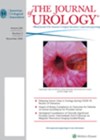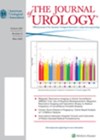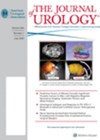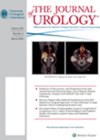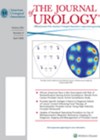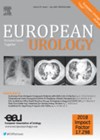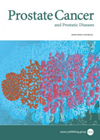
Journal Reviews archive for 2020
Long-term risks of augmenting the bladder in spina bifida patients
Bladder augmentation is utilised to treat children with neuropathic bladders secondary to spina bifida that results in hostile urodynamics, renal deterioration and / or urinary incontinence. Whilst it is associated with an improved quality of life and low mortality, it...
Testosterone supplementation after prostatectomy – journey from bad to good
The role of androgens in the pathogenesis of prostate cancer is quite complex and is not entirely clear yet. Despite several reports suggesting testosterone use is safe in patients diagnosed with prostate cancer, many clinicians are still reluctant to use...
Coronaviruses and kidney injury
This is a topical review of the effects of coronaviruses on the kidney and includes a description of the mechanisms of kidney damage by SARS, MERS and COVID-19. The authors quote two previous reports which estimate the incidence of acute...
Urological in-flight medical events
The future of air travel may seem uncertain at the present time, but up until the COVID-19 pandemic, approximately 44,000 inflight medical emergencies occurred annually, averaging 1 in 604 flights. Some of you will have heard the heart-sink announcement “if...
Trade-offs between risks and benefits of localised prostate cancer treatments – the COMPARE study
We know little about the trade-offs men make when considering the oncological and functional outcomes of individual treatment options for localised prostate cancer, and decisions are often influenced by physician opinion. The likely compromised functional results are viewed as a...
Changing concepts in endourological training – SIMULATE trial
Skill acquisition for endourological procedures is markedly different from traditional open surgical procedures, questioning the applicability of the presently used apprenticeship model. The lack of a universal simulation training curriculum has hampered its adoption into mainstream urological training. This study...
Telemedicine – safe, convenient and economical
I am sure that most, if not all, readers of Urology News will have utilised some form of telemedicine over the last few months during the height of the COVID-19 pandemic. This timely publication from Boston Children’s Hospital precedes the...
Hypospadias – can urologists achieve the unachievable?
US News & World Report (USNWR) provide rankings on a wide range of topics (education, health, money, travel, cars and law firms). In terms of healthcare, they suggest that their rankings (based on metrics) are a tool that can help...
Onabotulinum toxin A (BTX) not helpful for chronic scrotal pain
It is refreshing to read a report on negative outcomes as it reinforces the honesty that is often lacking with the well-known publication bias in medical publications. It is also not common to come across surgical randomised controlled trials (RCTs)...
Would some boys undergoing orchidopexy benefit from adjuvant hormonal therapy?
Orchidopexy is generally recommended between six months and one year of age given that many studies have shown that there is a progressive histological deterioration and poorer growth of the undescended testis that is not brought down to the scrotum...
COVID-19: cancer and corticosteroids
Under the prevailing COVID-19 crisis, this article is well worth reading. The current World Health Organization (WHO) guidance is not to start steroids in cancer cases, but there is no clear evidence of risks with steroids in cancer patients having...
Ulcerative colitis has a positive association with prostate cancer risk
This large-scale meta-analysis, incorporating studies from several population-based studies, evaluated the association between inflammatory bowel disease (IBC) and prostate cancer (Pca). Emerging evidence has suggested that IBD is a risk factor for extra-intestinal malignancies which may be due to an...



